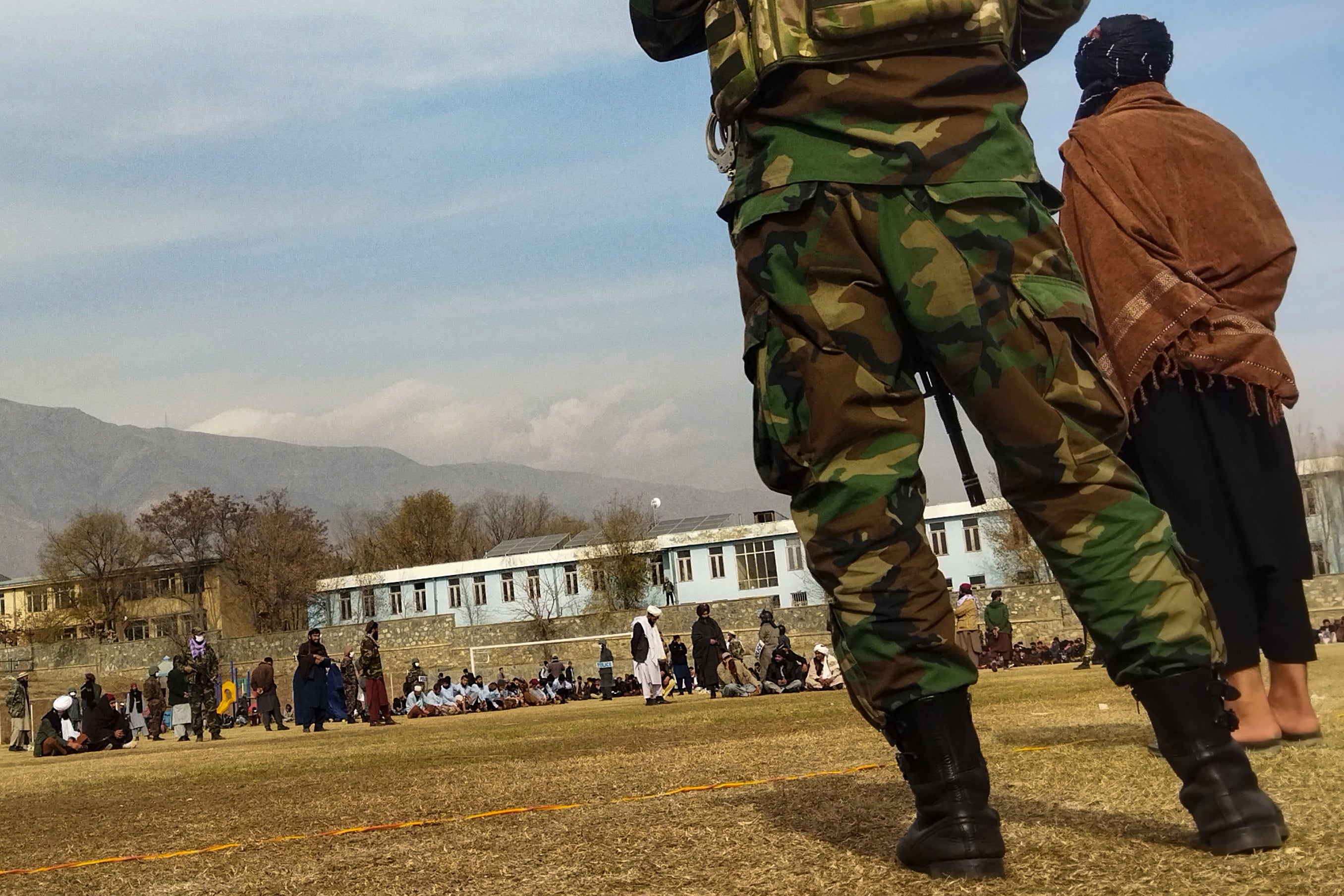Taliban vows to continue public floggings and executions as UN raises alarm
Taliban has flogged 274 men, 58 women and two boys in at least 43 instances in the past six months alone

Hundreds of flogging incidents, public executions and stonings carried out by the Taliban in Afghanistan in just the past six months have been slammed by a new UN report.
The hardline Islamist regime, ever since it took over Afghanistan in 2021, has asked judges, fighters and leaders to implement their interpretation of stringent Sharia law – something it has followed since the early days of its previous rule during the 1990s.
And in its reaction to the UN report – that called the Taliban’s methods archaic corporal punishment methods – the militant group said it is obliged to follow its strict interpretation of Islamic law.
The Taliban’s rulers have publicly flogged 274 men, 58 women and two boys in at least 43 instances in the past six months alone, the report said, calling on the interim regime to halt such practices.
“In the event of a conflict between international human rights law and Islamic law, the government is obliged to follow the Islamic law,” the Taliban foreign ministry said in response to a detailed report by the United Nations Assistance Mission in Afghanistan (UNAMA) released on Monday.
A majority of punishments were related to convictions of adultery and “running away from home,” the report said, while other purported crimes included theft, homosexuality, consuming alcohol, fraud and drug trafficking.
The UNAMA, in its report, also pointed to a statement by a Taliban official who said “cutting off of hands is very necessary for security” for its “deterrent effect, but that the cabinet was still assessing whether punishments would be conducted in public”.
The first corporal punishment under the current Taliban regime was recorded from 20 October 2021, when a woman and man convicted of adultery by the de facto district court were publicly lashed 100 times each.
Decrying the violations, UNAMA human rights chief Fiona Frazer said: “Corporal punishment is a violation of the Convention against Torture and must cease. The UN is strongly opposed to the death penalty and encourages the DFA to establish an immediate moratorium on executions”.
Ms Frazer was referring to Afghanistan’s Department of Foreign Affairs.
The UN agency has separately documented at least 182 instances when the Taliban carried out their own sentences during the height of their insurgency between 2010 and August 2021, resulting in 213 deaths and 64 injuries.
The Taliban rolled out punishments derived from Sharia law within weeks of the collapse of the Ashraf Ghani administration in Kabul in August 2021. It is still imposing them, despite having promised world leaders of a more moderate and humanitarian regime for women and girls than the one from the 1990s.
It publicly executed an Afghan man convicted of murder in December 2022, marking the first death penalty carried out by the current regime.
The sentence was carried out by the victim’s father using an assault rifle in the western Farah province in full view of the public in daylight as many spectators and top Taliban officials looked on.
Defending the execution, the Taliban’s top spokesperson, Zabihullah Mujahid, said the decision to carry out the punishment was “made very carefully”, following approval by three of the country’s highest courts and Taliban supreme leader Mullah Hibatullah Akhundzada.
Despite its claims, the Taliban has tightened the noose on human rights for women and girls by keeping them out of public spaces like parks and gyms, apart from denying them the rights to education and gainful employment.
Since its comeback, the Taliban has duplicated public corporal punishment and executions against individuals convicted of crimes, often in large venues such as sports stadiums and at urban intersections, as used to be seen in its first regime between 1996 and 2001.
Join our commenting forum
Join thought-provoking conversations, follow other Independent readers and see their replies
Comments




Bookmark popover
Removed from bookmarks